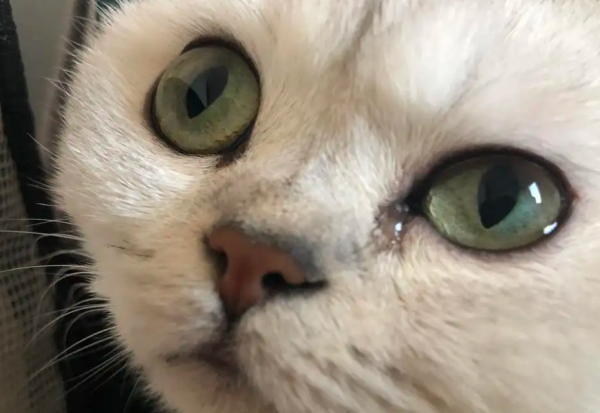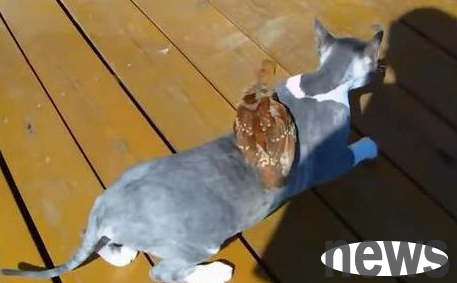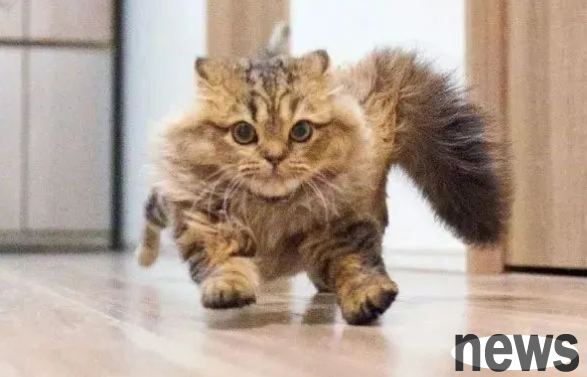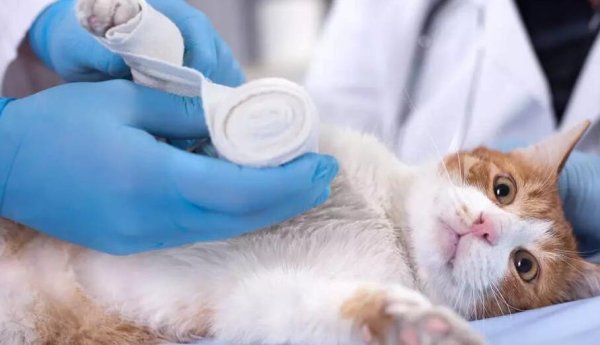10 must-see precautions for cats undergoing sterilization!
If you plan to sterilize your cat, don’t just think about sterilizing it and put the cat in the pet hospital. The operation is over. You must know some precautions. When is it suitable for it? What preparations should be made before the operation? How to take care of it after surgery?
1. What is sterilization surgery?
Surgery to remove the female ovaries, uterus, or male testicles so that they can no longer reproductive.
2. Why do I sterilize?
1), can reduce the occurrence of diseases.
For male cats, testicle tumors and prostate hypertrophy can be avoided due to estrus. It can avoid urinary occlusion in male cats that frequently have estrus. For female cats, avoid ovarian cysts, uterine purulents, breast tumors, ovarian tumors, uterine fibroids and other diseases due to excessive estrus frequency.
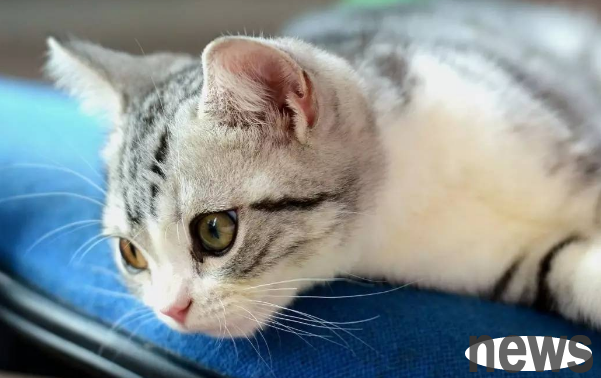
2), cats after sterilization will not be infected with diseases that are transmitted through sexual behavior, such as cat AIDS (a cat's immune system disease).
3), Let the cat get rid of the tension, irritability, and decreased appetite caused by estrus, and restore its original lively nature. Moreover, for male cats, they will also change their habit of using urination to vent.
4), Avoid blind reproduction and control the number of stray cats.
The benefits and disadvantages of specific sterilization:
3. Sterilization time?
Generally, cats can do it if they are over six months old and weigh more than six pounds (it is recommended to do it after the cat is sexually mature or after adulthood). In addition, sterilization surgery is not recommended during estrus.
can also be done by elderly cats (specifically based on the cat's physical condition).
4. What changes will happen after sterilization?
1), because the cats after sterilization are no longer troubled by hormones, they will escape from irritability and tension and return to the naive and happy state they used to be. This is why many friends say that cats become lively after surgery.
2), the cat will no longer be lost in estrus, avoiding the dual pain of the owner and the cat.
3), because life is comfortable and without worries, cats will gain a little weight. However, most of them return to normal weight from weight loss caused by estrus. It should also be noted that you should not feed your cat a lot of nutritional supplements after the operation, as this will also cause the cat to gain weight.
5. The duration of sterilization surgery? Hospitalized or not? The time required for sterilization of
Female takes about 40 minutes and males can complete it in about 10 minutes.
Whether hospitalization is required depends on the situation after the animal's surgery is completed. If there are no concerns about wound infection, you can be discharged after the surgical anesthesia is restored.
6. What preparations should be made before the operation?
Prepare cat bags, urine pads, eye ointments, and anti-bite rings.
1.First, fast for 6-8 hours. Because anesthetics should be given before the operation, which has an irritating effect on the stomach and intestines. To prevent cats from vomiting after anesthesia, fasting should be done before the operation and drinking a small amount of water can be done.
2. When going to the hospital for surgery, the cat should be packed with a strong and firm bag. The bag should be large enough (you can also use an air box). After the operation, the cat can lie flat and the neck should be placed flat to avoid suppressing breathing. Because cats will wake up for two hours after the operation, and they will become incontinent during this process, you can put an adult urine pad in the bag that contains the cat so that the cat can lie on it.
3. The cat's eyes are open after anesthesia. To prevent dry eyes, eye drops or a little eye ointment is needed.
4. Triple vaccine must be given before surgery. (It is recommended to inject one week before the operation)
5, let the cat eat 8-12 hours after anesthesia to avoid damaging the stomach and intestines.
7. The surgical process?
1. Be sure to weigh the exact weight before anesthesia, and do not allow the doctor or owner to estimate it; Anesthetized animals should urinate after 3-4 hours of anesthesia, and often urinate in large quantities, because the anesthetic agent used during sterilization, 846 mixture is mainly through kidney metabolism. If there is a problem with the animal's renal function or urinary system, it will lead to secondary anesthesia, which means returning to anesthetic state after waking up. This is a very dangerous sign, and you must go to the hospital as soon as possible;
2. The sterilization operation of male cats is very simple. It is to open a very small mouth on each of the two small eggs and remove the testicles. Because the incision is very small, there is no need to sew or bandage. There is no need to take crazily tonics before the operation. Generally, the surgery for male cats can be completed in about 10 minutes.

3. The sterilization surgery of female cats is relatively complicated. It requires a small incision in the abdomen, the uterus and ovaries are removed, and then sutured. The operation time is generally 20-30 minutes. After the operation, the doctor will give the cat a surgical gown, which will not prevent the cat from defecation and daily life. The stitches were removed seven days after the operation.
The doctor will also give the cat anesthetics anesthesia to prevent postoperative inflammation.
8. How long does it take to return to normal after the operation?
Generally speaking, male cats can recover on the same day after surgery. The recovery period of the female cat is about 2-3 days, and the female cat basically removes the stitches in about a week.
9. How to take care of it after the operation?
1. After the operation, be careful to lie down the cat's head flat and straighten its neck to avoid suppressing breathing. After returning home, place it in a warm place on the ground with a urine pad under your body. It is best not to put it on the bed or sofa, so as not to roll on the ground while half asleep and half awake.
2. Generally, the cat will wake up completely after two hours. The male cat can eat on the same day after the operation and return to normal the next day. Female cats usually feel pain for two days and return to normal on the third day. The owner should pay attention to controlling the female cat not to jump up and down within one week after the operation.
3. Try to avoid letting the cat lick the wound to avoid infection. You can wear anti-bite rings if necessary.
10. Special reminder!
1. Cats (especially female cats) will have a sharp increase in appetite within six months after sterilization, and some cats will gain weight sharply.. During this period, the owner must pay attention to controlling the cat's diet. Cats that are too fat are prone to "obesity", but the fatter the cat, the better.
2. For sterilization surgery, it is recommended to do it when the weather is cooler. When it is hot, you need to pay attention to heat dissipation to avoid wound infection and inflammation.
3. As for the approximate cost of surgery, this requires a hospital. The costs and surgical plans of each hospital are different. You can consult the local hospital for details.


